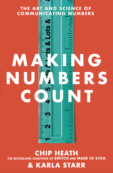What looks like resistance is often a lack of clarity. Change accelerates when people understand — in specific, behavioral terms — how to reach their goals.
This theme emerged in some educational research cited by Amanda Ripley in her new Time piece called, “Should kids be bribed to do well in school?” The most successful “bribe” programs rewarded behaviors rather than grades. At first look, that seems odd. Why reward an “input” rather than the “output”? Well, here’s why:
The students [in New York City] were universally excited about the money, and they wanted to earn more. They just didn’t seem to know how. When researchers asked them how they could raise their scores, the kids mentioned test-taking strategies like reading the questions more carefully. But they didn’t talk about the substantive work that leads to learning. “No one said they were going to stay after class and talk to the teacher,” Fryer says. “Not one.”
We tend to assume that kids (and adults) know how to achieve success. If they don’t get there, it’s for lack of effort — or talent. Sometimes that’s true. But a lot of the time, people are just flying blind. John List, an economist at the University of Chicago, has noticed the disconnect in his own education experiments. He explains the problem to me this way: “I could ask you to solve a third-order linear partial differential equation,” he says. “A what?” I ask. “A third-order linear partial differential equation,” he says. “I could offer you a million dollars to solve it. And you can’t do it.” (He’s right. I can’t.) For some kids, doing better on a geometry test is like solving a third-order linear partial differential equation, no matter the incentive.



